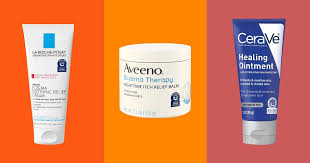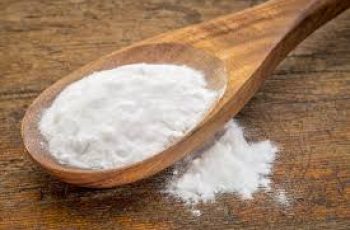
Eczema Cream for Face
Eczema is an itchy, scaling red rash on the face in babies, kids and adults that can occur on the face. Eczema on the face is hard to treat because you cannot use strong steroid prescription cream for eczema on the face. These will thin and damage the skin if used for over a few weeks. Eczema cream for the face must be gentle, steroid-free, and should be a good barrier repair moisturizer.
The best products for eczema on the face are creamy barrier- safe face washes, and creams, ointments, and oils. Lotions can be used to treat treat eczema on the face but they are not as effective and creams and oils.
Eczema on the face can be called many different names according to where it occurs, but all of these types of face dermatitis have the same cause: an impaired skin barrier that leads to sensitive, dry, easily inflamed skin.
Rashes on the face that should be treated with an eczema cream:
Eyelid dermatitis, rash around eyes, periorbital dermatitis, eyelid eczema
Lip licker’s dermatitis, Red ring around lips, perioral dermatitis, lip eczema
Redness around nose and in nasolabial folds
Eczema on hairline
Eczema on neck
Eczema on chin
All of these types of eczema on the face need the same skin care products and over the counter creams. The best products for eczema on the face are gentle cleansers and moisturizers with barrier repair and soothing anti-inflammatory ingredients.
Whether you want prescription medications or natural remedies like manuka honey or oils, you will not be able to get rid of eczema on the face in one day. The fastest I have seen my patients get better is 3 days but it can take a few weeks.
What you use on your face to treat eczema can make a big difference. This blog will talk about the best lotions, ointments, oils, and creams to get rid of face eczema (also called atopic dermatitis).
Eczema Cream For the Face Should Strengthen the Skin Barrier
Before I can give you my advice on dermatologist-recommended eczema face moisturizers, I first want to make sure you understand the importance of the skin barrier.
Eczema is caused by a defective skin barrier. This can be genetic. You cannot clear the eczema on your face without strengthening your skin barrier.
Your skin barrier is affected by:
Cleanser choice
Moisturizer choice
Exfoliation
What type of water you use to wash your face
Everything you put on your face should protect and strengthen your skin barrier.
Best Barrier Repair Moisturizers to Treat Eczema on the Face
Eczema moisturizers MUST have barrier repair ingredients. Many moisturizers that claim to repair the barrier actually do not because they do not mimic the skin’s natural barrier structure. The way you can tell if a barrier repair moisturizer is good is by looking at it under a microscope to see if it has the skin’s natural barrier structure known as the maltese cross pattern.
You can learn more about this from a skin barrier scientist that I interviewed on the Skin Type Solutions YouTube channel.
These moisturizers have barrier repair ingredients such as ceramides, fatty acids and cholesterol to help repair the defect in your skin that can cause eczema.
The skin care brand specialized in eczema creams- and all of them have the maltese cross pattern so this is the best dermatologist recommended facial eczema treatment. You have a few options to choose from:
The best barrier repair moisturizer for the face is Zerafite Soothing and Calming Face Cream.
If you want a face cream for eczema that also protects skin from aging choose Zerafite Wrinkle Defense Barrier Cream.
If you want to treat eczema dark spots with a cream that helps lightens skin and repair the barrier try Zerafite Brightening Cream.
Other barrier repair moisturizers that can be used to get rid of eczema on the face are shown below.
Jane Iredale Beyond Matte™ Liquid Foundation
$52.00
Add to Cart
Neocutis BIO CREAM FIRM – Smoothing & Tightening Cream
$77.00
Add to Cart
Revision Skincare D.E.J. Face Cream
$62.00
Add to Cart
SkinCeuticals Triple Lipid Restore 2:4:2
$155.00
Add to Cart
La Roche-Posay Toleriane Dermallergo Night Moisturizer
$31.97
Add to Cart
Obagi Hydrate Luxe
$80.00
Add to Cart
Medature PSL Repair Moisturizer
$36.00
Add to Cart
Biopelle Tensage Soothing Cream Moisturizer
$77.56
Add to Cart
EltaMD Barrier Renewal Complex
$62.00
Add to Cart
PCA Skin ReBalance
$61.00
Add to Cart
Murad Targeted Wrinkle Corrector
$78.00
Add to Cart
La Roche-Posay Toleriane Double Repair Matte Face Moisturizer for Oily Skin
$23.99
Add to Cart
Jane Iredale Beyond Matte™ Liquid Foundation
$52.00
Add to Cart
Neocutis BIO CREAM FIRM – Smoothing & Tightening Cream
$77.00
Add to Cart
Revision Skincare D.E.J. Face Cream
$62.00
Add to Cart
SkinCeuticals Triple Lipid Restore 2:4:2
$155.00
Add to Cart
La Roche-Posay Toleriane Dermallergo Night Moisturizer
$31.97
Add to Cart
Obagi Hydrate Luxe
$80.00
Add to Cart
Medature PSL Repair Moisturizer
$36.00
Add to Cart
Biopelle Tensage Soothing Cream Moisturizer
$77.56
Add to Cart
EltaMD Barrier Renewal Complex
$62.00
Add to Cart
PCA Skin ReBalance
$61.00
Add to Cart
Murad Targeted Wrinkle Corrector
$78.00
Add to Cart
La Roche-Posay Toleriane Double Repair Matte Face Moisturizer for Oily Skin
$23.99
Add to Cart
Jane Iredale Beyond Matte™ Liquid Foundation
$52.00
Add to Cart
Neocutis BIO CREAM FIRM – Smoothing & Tightening Cream
$77.00
Add to Cart
Revision Skincare D.E.J. Face Cream
$62.00
Add to Cart
SkinCeuticals Triple Lipid Restore 2:4:2
$155.00
Add to Cart
La Roche-Posay Toleriane Dermallergo Night Moisturizer
$31.97
Add to Cart
Obagi Hydrate Luxe
$80.00
Add to Cart
Medature PSL Repair Moisturizer
$36.00
Add to Cart
Biopelle Tensage Soothing Cream Moisturizer
$77.56
Add to Cart
EltaMD Barrier Renewal Complex
$62.00
Add to Cart
PCA Skin ReBalance
$61.00
Add to Cart
Murad Targeted Wrinkle Corrector
$78.00
Add to Cart
La Roche-Posay Toleriane Double Repair Matte Face Moisturizer for Oily Skin
$23.99
Add to Cart
What are the best eye creams for eczema?
Eczema on the eyelids
If you had red scaley eyelid dermatitis, you can use an over the counter cream such a hydrocortisone for a few days. But if it persists over a few days, we recommend switching to a natural soothing oil such as argan oil.Oils are a good home remedy to treat eczema on eyelids but make sure the oils have soothing fatty acidsvand do not use essential oils to teat eczema on the eyelids.
The best soothing oil is PAORR Organic Argan Oil.
Other choices of oils that soothe skin and can be used on eczema on the eyelids are shown here:
ClarityRx Glimmer of Hope Shimmering Facial Oil
$58.00
Add to Cart
Murad Multi-Vitamin Infusion Oil
$79.00
Out of Stock
Shea Terra MD 100% Pure Moroccan Argan Oil
$24.00
Out of Stock
PAORR By Zerafite Organic Moroccan Argan Oil
$22.75
Add to Cart
ClarityRx Glimmer of Hope Shimmering Facial Oil
$58.00
Add to Cart
Murad Multi-Vitamin Infusion Oil
$79.00
Out of Stock
Shea Terra MD 100% Pure Moroccan Argan Oil
$24.00
Out of Stock
PAORR By Zerafite Organic Moroccan Argan Oil
$22.75
Add to Cart
ClarityRx Glimmer of Hope Shimmering Facial Oil
$58.00
Add to Cart
Murad Multi-Vitamin Infusion Oil
$79.00
Out of Stock
Shea Terra MD 100% Pure Moroccan Argan Oil
$24.00
Out of Stock
PAORR By Zerafite Organic Moroccan Argan Oil
$22.75
Add to Cart
Manuka honey can be used on the eyes for eyelid dermatitis.
The most common cause of a rash around the eyes is actually not eczema but is an allergic reaction- usually to nail polish. (yes nail polish even if you do not touch your eyes causes over 80% of eyelid dermatitis). So make sure your nail polish and eye make up does not have formaldehyde, toluene and other allergens.
best oils for eczema treatments
Best Natural Oils to Treat Eyelid Dermatitis
Argan oil – High in vitamin E and essential fatty acids, it is known for its soothing and anti-inflammatory properties.
Avocado oil – Contains antioxidants, vitamins A, D, and E, and omega-3 fatty acids which can help soothe the skin. Not as good s other others for eczema on the face.
Black seed oil – Known to have anti-inflammatory and antioxidant properties.
Borage oil – Rich in gamma-linolenic acid (GLA) which has potent anti-inflammatory effects.
Calendula oil – Derived from marigold flowers and is often used for its anti-inflammatory and healing properties. Caution: If you have an allergy to other members of the Compositae/Asteraceae family, such as ragweed, you should avoid using calendula oil or use it with caution.
Chamomile oil – Especially known for its calming and anti-inflammatory effects on the skin. Caution: If you have an allergy to other members of the Compositae/Asteraceae family, such as ragweed, you should avoid using chamomile oil or use it with caution.
Evening primrose oil – High in GLA, it has strong anti-inflammatory properties.
Flaxseed oil – Rich in omega-3 fatty acids which have anti-inflammatory effects.
Grapeseed oil – Contains anti-inflammatory polyphenols and can be soothing for the skin.
Hemp seed oil – High in omega-3 and omega-6 fatty acids which offer anti-inflammatory properties.
Jojoba oil – Chemically similar to the body’s natural oils, and can be soothing and anti-inflammatory.
Macadamia oil – Contains omega-7 palmitoleic acid, which has anti-inflammatory effects.
Olive oil – Contains phenols which have anti-inflammatory and antioxidant properties but not as good for eczema prone skin as other oils..
Pomegranate seed oil – Known for its antioxidant and anti-inflammatory properties.
Rosehip oil – High in vitamins A and C and essential fatty acids, all of which have anti-inflammatory effects.
Safflower oil – Rich in linoleic acid, an essential fatty acid that offers anti-inflammatory properties.
Sea buckthorn oil – Contains a wealth of essential fatty acids and antioxidants that have anti-inflammatory effects.
Sesame oil – Has anti-inflammatory and antioxidant properties.
Sunflower oil – Contains vitamin E and omega-6 fatty acids which can reduce inflammation.
Tamanu oil – Known for its wound-healing and anti-inflammatory properties.
Tea tree oil – While more commonly known for its antimicrobial properties, it can also soothe inflammation when diluted. Can cause skin irritation in some people.
Eczema Around the Mouth, Lip Eczema, and Lip Licker’s Dermatitis
A red ring around the lips may be eczema but it could also be perioral dermatitis, lip licking dermatitis, or an allergic reaction. These can all be treated with soothing barrier repair moisturizers containing natural anti-redness ingredients.
How to know what is causing the rash around your mouth? Ask yourself these questions:
Are you a lip licker? (the licking is casing eczema around your mouth)
Do you eat a lot of mints or chew gum? (Probably an allergy to flavoring)
Do you have eczema on other parts of the face? (if yes- its eczema!)
Have you been using a steroid cream on the face (This can give you perioral dermatitis)
How To Get Rid of a Red Ring Around the Mouth and Treat Lip Eczema
If you have perioral dermatitis, you might require an oral anti-inflammatory antibiotic like doxycycline. First try changing your toothpaste and avoiding any mints or flavorings with mint, wintergreen, or cinnamon. Teeth whitening toothpastes often cause a red ring around the mouth. Try Sensadyne Toothpaste or baking soda to see if the rash around your mouth clears.
If you have any of these rashes around the lips, the best treatment is:
Barrier repair moisturizers above for suggestions)
Soothing oils (see list under eyelid dermatitis)
Avoid using exoliators around the mouth or on the lips
Make sure no allergens are in any lipsticks or lip balms
best eczema treating ingredients in moisturizers
Best Ingredients in Face Moisturizers for Eczema
The best way to treat eczema on the face is with a cream- not a lotion or ointment. Lotions do not have enough fatty acids in them and ointments are too greasy. The oils listed above are also a good choice but barrier repair moisturizers are the fastest way to cure eczema without a prescription.
To find the best face cream for eczema, you cannot just read the label. The labels are confusing and do not help you know what type of moisturizer it is.
Many of the fatty acids that you want to look for in facial eczema treatments are found in strange chemical names that may be hard to recognize.
The best fatty acid to treat eczema is stearic acid. It can be found in shea butter, cocoa butter and ingredients that end in the word -stearate. Linoleic acid is also a good soothing fatty acids to look for and is safe to use on the face.
finding the best eczema creams
How to Find the Best Face Cream for Eczema
The best face moisturizers to treat eczema have a characteristic maltese cross pattern when viewed under a cross polarized microscope. The maltese cross pattern only occurs when the lipids in the moisturizer mimic the shape and structure of the lipids in your skin barrier. This means they mimic your skin’s natural moisturize barrier replacing what is genetically absent in eczema prone skin. In case you do not have access to a cross polarized microscope, here are moisturizers for eczema that show the maltese cross pattern:
All the Zerafite Products
Medature PSL Repair Cream
Eczema Sunscreen
Tips To Treat Eczema on the Face
To clear eczema on the ace fast- here are some dermatologist recommendations and advice:
Use filtered water to wash your face
Use warm water to wash face
Do not exfoliate
Avoid retinoids when skin is dry and red
Use moisturizers with barrier repair ingredients
Avoid alcohol in skin care (Fatty alcohols are OK to use)
It is ALWAYS best to make sure any products you but on your face are the right ones for your Baumann Skin Type.
Once you take the quiz and discover your skin type, we will give you an eczema skin care routine for your face and you can choose from the best medical grade skin care brands.


